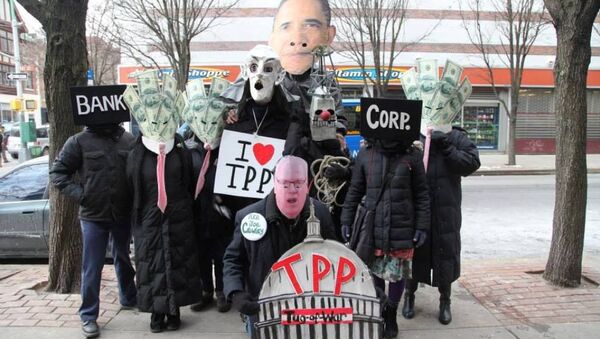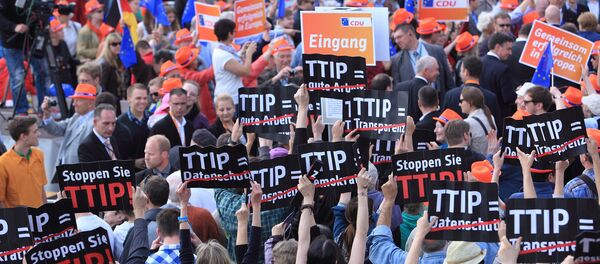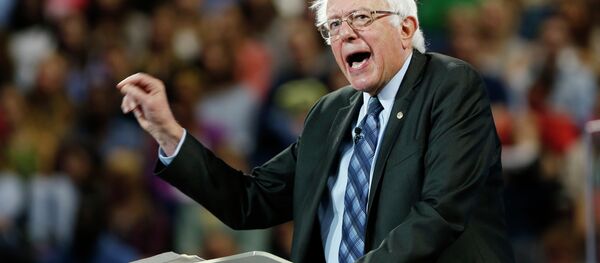On Monday, 12 Pacific Rim countries, with the United States and Japan being the biggest economies among them, concluded the TPP free trade agreement. The deal aims to deregulate trade between the United States and the Pacific region and remove governmental oversight of trade relations.
"Our concern with deals like the TPP is that rather than free trade, they create a system of winners and losers negotiated in secret. We support the removal of tariffs and trade barriers, but creation of special privileges, special tribunals, and other special rules for preferred industries is something we strongly oppose," Sarwark said.
The TPP agreement will introduce tariff free trade between the United States, Japan, Australia, Brunei, Canada, Chile, Malaysia, Mexico, New Zealand, Peru, Singapore, and Vietnam, with the agreement encompassing a territory representing approximately 40 percent of global gross domestic product.
There has been considerable opposition to TPP from international organizations and parliamentarians, who have criticized the deal’s secrecy during negotiations, its supposed favoring of multinational corporations and its exclusion of BRICS countries.




